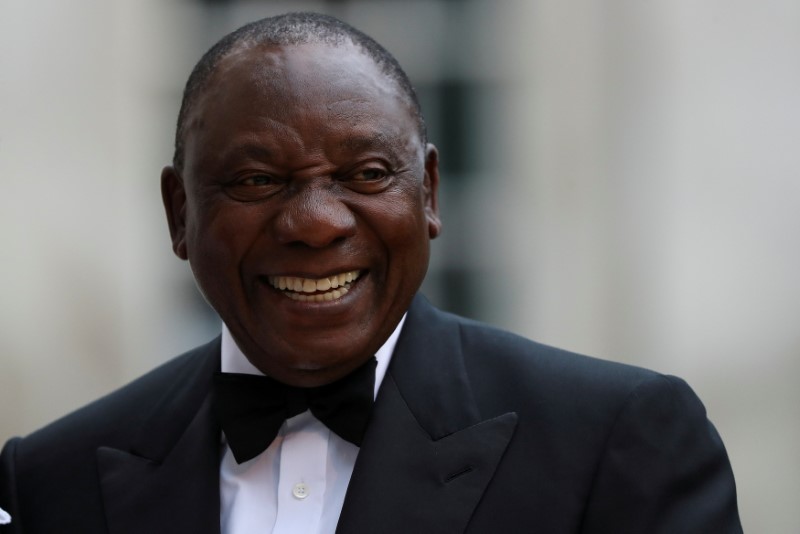
South Africa’s Ramaphosa to Meet Zulu King, Tribal Leaders on Land Issue
South African President Cyril Ramaphosa confirmed on Friday morning that he will be meeting with Kwa-Zulu Natal (KZN) King Goodwill Zwelithini over the weekend. Speaking at a BRICS breakfast meeting on Friday morning, Ramaphosa also affirmed that SA’s land redistribution drive will not affect communal lands controlled by tribal chiefs, and that the government has […]

South African President Cyril Ramaphosa confirmed on Friday morning that he will be meeting with Kwa-Zulu Natal (KZN) King Goodwill Zwelithini over the weekend.

Speaking at a BRICS breakfast meeting on Friday morning, Ramaphosa also affirmed that SA’s land redistribution drive will not affect communal lands controlled by tribal chiefs, and that the government has no intention to grab land from these rural communities.
Ramaphosa’s meeting is believed to be in a bid to defuse growing tensions over the issue.
On Wednesday, addressing a public gathering of Amazulu people, the Zulu King warned of possible violence if the state tried to expropriate communal lands which comprise 13 percent of South Africa.
Zwelithini evoked the spectre of conflict on the issue, telling the summit that “this will be the second clash” over land, the first being the 19th century Anglo-Zulu war.
Ramaphosa said Friday: “I would like to make it very clear that it is not government’s intention to go and grab land from rural communities, land that is under the control of traditional leaders.”
Ramaphosa said that there is no need for anyone to feel fearful.
“I am going to be meeting with His Majesty, the King to address this matter so that whatever fears he and the Zulu nation have should be completely dispelled.”
Public hearings are currently being held all over the country to gauge support for the proposal by the African National Congress (ANC) to change the constitution to allow for land to be expropriated without compensation for redistribution to poor black people.
More than 20 years after the end of apartheid, land ownership is contentious in South Africa, the continent’s biggest economy. Most land is still in the hands of the white minority, making it a potent symbol of wider income and ownership disparities.
Reformers in the ANC had also wanted the policy to apply to tribal lands and provide people in such areas with direct property ownership. This would significantly dilute the power held by traditional leaders, who argue they are the custodians of land that was communal before Europeans arrived on the scene.
Tribal authorities control access to resources on such lands, including who can farm certain plots, and they also negotiate deals in such areas with companies including miners, giving them significant power.
They are a key political base of the ANC and their support will be crucial in elections next year. On several occasions this week they warned the ANC to keep its hands of their lands.
Ramaphosa also pointedly said the government would not touch lands under the administration of the Ingonyama Trust, which is effectively controlled by King Zwelithini.
“We have no intention whatsoever to go and grab the land that is under the Ingonyama Trust. Our programme of land redistribution and land reform is going to follow a constitutional process,” Ramaphosa said.
(Editing by Alexander Winning, Raissa Kasolowsky and Jenni Baxter)
